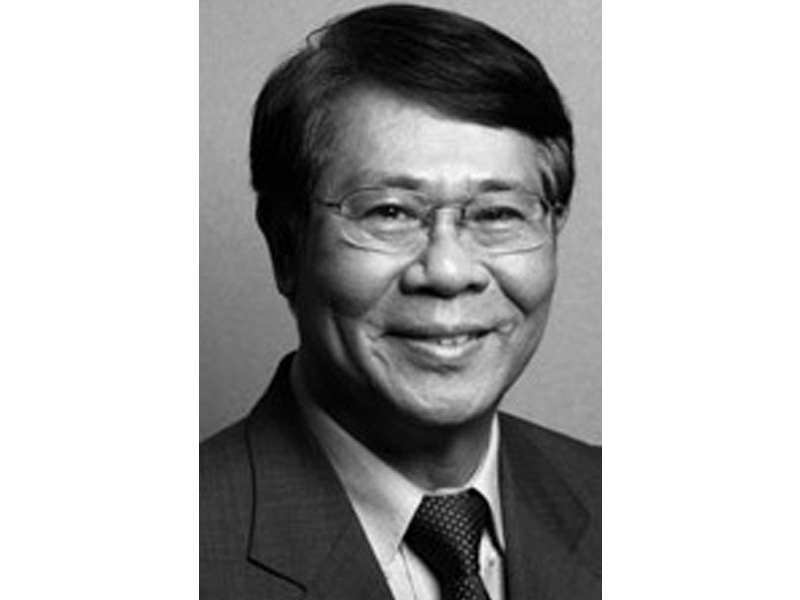Profile of Coden Specialists Dental
Coden Specialists Dental
[caption id="attachment_14096" align="aligncenter" width="300"] Advanced dental technology for the benefit of patients is provided at this clinic in Orchard Street in Singapore.[/caption]
Advanced dental technology for the benefit of patients is provided at this clinic in Orchard Street in Singapore.[/caption]
At Coden Specialists Dental, Our Dentists start their practices for many reasons.
In 2005, The University of Warwick (UK) approached Dr Ng Fooi Chin, a highly regarded oral maxillofacial surgeon at Mt Elizabeth Hospital to organise and conduct the first Masters Programme (MSc) in Implant Dentistry in Singapore for dentists in Southeast Asia. With a zeal to contribute towards Singapore’s vision to be a global medical hub, Dr Ng rallied her colleagues Dr Lee Kwee Jin, a periodontist and A/Prof Ho Kee Hai, a leading oral maxillofacial surgeon in dental implant and former Head of the Department of Oral Maxillofacial Surgery, National University of Singapore, to co-lead the implant programme. A place was needed for the clinical training, hence, Ho Kee Hai & Partners was founded.
In 2006, Ho Kee Hai & Partners was established with the twin purpose of a private specialist group practice and a training centre in implant dentistry for Southeast Asia.
Specialists provided treatment to patients in the day and trained dentists after clinical hours. Patients of the clinic were also educated on their dental conditions to help them have a holistic understanding of their dental problems and be able to make better-informed decisions.
Coden Specialists Dental passion and expertise in dental implantology, and postgraduate education and training was well recognised and received. In 2010, a second British university, the University of Central Lancashire, appointed Ho Kee Hai & Partners to lead their MSc course in dental implantology and oral surgery for dentists in Southeast Asia and Australia.
In December 2013, the practice was renamed CODEN Specialists.
The name Coden Specialists Dental is inspired by the Latin words “cognitio dentalis” which expresses our ethos in continuous pursuit of new knowledge in dentistry. It also reflects a company of dentists with a shared vision of becoming an exemplar of clinical and teaching excellence.
Today, CODEN Specialists is evolving to offer Singapore’s own dental implant programme to dentists in the region.
Advanced technology at Coden Specialists Dental is deliver high quality treatments. Expertise enhanced.
Coden Specialists Dental centre houses all the necessary equipment, using the latest in advanced dental technology, for diagnoses and treatments.
Coden Specialists Dental digital X-ray, CBCT, operating microscope, intra-oral camera and CCTV are all computerised to allow live surgery transmissions and facilitate joint discussions with referring clinicians on the patients’ conditions and treatments.
Equipped with enhanced expertise and advanced technology, our specialists and facilities fulfilled the stringent requirements set by The University of Warwick (UK) and the University of Central Lancashire (UK), and was appointed their International Implant Training Centre for dental surgeons – from Singapore and the region – undertaking the MSc in Implant Dentistry.
Dental Implants in Coden Specialists Dental
What is dental implant?
Dental implant treatment is the preferred rehabilitation solution for missing teeth in many instances.
Dental implant is titanium screw inserted into the jaw bone to act as an anchor for a crown or a set of replacement teeth. A crown is connected to the titanium root to restore the missing tooth.
Dental implants can be used to support a number of dental prostheses, including crowns, bridges or dentures.
Prior to commencement of surgery, very careful and meticulous planning is required to identify vital structures such as the inferior alveolar nerve or the sinus, as well as the shape and dimensions of the bone to properly orientate the implants for the most predictable result. A CT scan will also be obtained prior to the surgery.
How successful is dental implant treatment?
Success of dental implant treatment varies. It is generally related to a sound treatment plan, the surgeon’s skill, experience, and the amount of bone available at the implant site. The patient’s general health, oral hygiene and oral habits also influence the longevity of the implant.
The general consensus is that implants carry a success rate of up to 95% – 98%. With proper care, implants can last a lifetime.
What are the advantages of dental implants?
-
Improves function i.e. comfort, biting and chewing As the implant tooth is fixed, it is very stable. Implant restorations feel like your teeth. It is more comfortable and stable compared to dentures which can move and need acrylic flanges and wires for retention.
-
Preserves healthy adjacent teeth and improves oral hygiene As implants are standalone, they do not require sacrificing adjacent teeth with crown preparation. Implant allows access between teeth, thus facilitating easier maintenance of oral hygiene.
-
Preserves jaw bone During chewing, the biting force that is transmitted down the implant into the bone acts as a stimulant to preserve the jaw bone from shrinkage.
-
Restores appearance Dental implant restoration looks like your own teeth.
-
Long lasting Unlike natural teeth, implants do not decay. With good health and good oral hygiene, implants can last very long, almost a lifetime.
Am I suitable for implants?
-
Generally, all healthy patients can have implants as long as they have bone.
-
Patients who have insufficient bone can still have implant treatment with bone grafting to bulk out their bone mass. Bone grafting and implant placement can be done simultaneously or as separate procedures.
-
Patients with severe diabetes, heavy smokers and with history of previous head and neck radiotherapy are advised to consult your dentists to evaluate your suitability for implants.
-
No patient is too old to have implants. However, very young patients who are still growing are advised to delay implant placement until the end of their growth spurt.
Sign Up and Get a Free Consultation and a Treatment Quote today, Via DentistConsultationHub.com
Work History (0)
- There are no activities yet.


















